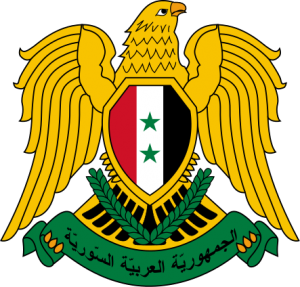Wikipedia photo
TORONTO – The sister of a Toronto photojournalist killed in a Syrian air strike says he worked tirelessly to document for the world the “tragedies” carried out in the volatile region.
A Syrian activist says Ali Moustafa, 29, was killed alongside seven other people Sunday after Syrian government aircraft dropped two explosive-laden containers in the rebel-held Hadariyeh area of Aleppo.
Moustafa’s sister, Justina Botelho, says the freelance photographer had been in Turkey in recent weeks but made his way into Syria to record the unrest in that country’s ongoing civil war.
Botelho confirmed her brother’s death after activists sent her a photograph of his corpse.
She says her brother called Toronto his home but would head time and time again to the Middle East to record injustices carried out against people there.
Botelho says he left for Egypt last September and was in Turkey for the final stretch of his trip when he suddenly decided to enter Syria to record the conflict alongside a group there.
She says his family wasn’t aware Moustafa was in Syria and that he was due back in Toronto within weeks, with the images of suffering he saw through his lens taking a toll on him.
“He suffered a lot. He saw a lot of tragedy and he was having a really tough time. He just wanted a break,” Botelho said in an interview, adding she was “very much in shock.”
“He was a humanitarian. He cared about people.”
Botelho said that on his return to Toronto her brother would sell his photos in an art gallery, and send the money back to struggling people in the places he had visited.
She says Moustafa was born in the city and used it as his home base, but never settled down as he was always leaving for crisis spots with camera in tow.
“He was a really giving person. All he wanted is to relate to the rest of the world the tragedies that were happening. That was his focus,” she said.
“That’s all he really cared about — just helping people to understand what’s going on.”
In a July 2013 interview posted on his blog, Moustafa told a reporter that he first went to Syria in March that year after travelling to Israel, the Palestinian Territories and Egypt.
“I felt it was important to go there to cover the war firsthand,” Moustafa said. “In a way, I’m also fascinated by war not in the gory sense but in the way it impacts us as human beings. What does it take away? What does it leave behind? Most importantly, what does it transform us into?” he said.
“Leaving Syria, coming back to Canada and knowing that it’s getting worse every day is difficult. I struggle every day with trying to think about ways that we can show solidarity with the Syrian people and possibly influence the outcome in a positive way.”
Toronto-based activist Justin Podur, who knew Moustafa, remembered him in an online post as a passionate photographer and activist who “was no hotel journalist.”
“Pretty much everything I ever saw him do, he did with this motivation. He never put himself above the people he was writing about. He put himself with them, instead.”
Syria is the world’s most dangerous conflict for reporters.
Since the Syrian uprising began in March 2011, dozens of journalists have been kidnapped or killed by both forces loyal to President Bashar Assad and rebels seeking his overthrow.
The most vulnerable journalists have been freelancers who do not have companies providing them with safety training, equipment or insurance. Moustafa sold photographs to the photo news agencies EPA and SIPA. Representatives of both companies said he had only worked with them briefly.
A Syrian activist who identifies himself as Abu al-Hassan Marea said a military helicopter dropped a barrel bomb on the Hadariyeh area, where Moustafa was. After bystanders and reporters gathered to see what happened, another barrel bomb was dropped, mortally wounding him.
